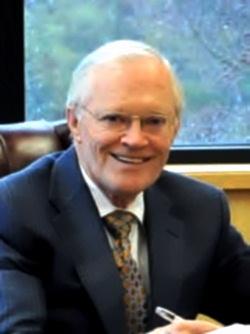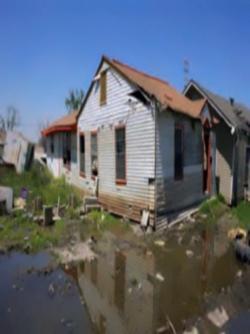Success Where Others Failed?
For many years, Canada was made up mostly of people whose ancestors came from England or France, along with indigenous peoples. But this demographic has changed dramatically over the last half century. As with the United States, Canada is a nation of immigrants. Prior to 1961, more than 90 percent came from Europe. That number is now down to 16 percent. Today, Canada is a mosaic of peoples from all inhabited continents of the world.
Canada’s 2011 census recorded more than 200 different ethnic origins, with more than 200 languages reported as a home language or mother tongue. British, French or Canadian ethnic origins account for less than half the population. Immigration now comes from the Middle East and East Asia, more than from Europe. With lowered birthrates and an aging population, these immigration trends will surely continue to increase the diversity of Canada’s peoples.
The creation of a multicultural society is a point of pride with most Canadians, and it is celebrated in government, in the media, and in polite conversation. You will often find articles extolling how Canada has succeeded where others have failed in this experience. Typical is this report by journalist Haroon Siddiqui, comparing failures in Europe to Canada’s success: “While French President Nicolas Sarkozy, German Chancellor Angela Merkel and British Prime Minister David Cameron pronounced multiculturalism dead, no serious national politician in Canada dare suggests it.... We are now the envy of the world, for having expanded our legal, political and social space to include all citizens, regardless of culture, religion, ethnicity or colour” (“Happy birthday to Canadian multiculturalism,” Toronto Star, October 8, 2011).
And then there was the article chiding Chancellor Angela Merkel of Germany after she declared multiculturalism a failure in her country: “Canada stands apart as not only being multicultural, but as a country that has actively encouraged multiculturalism through its laws and policies for decades. Let’s invite Chancellor Merkel and the members of her government to Canada… let’s invite our German friends to discover the benefits of a ‘real’ multiculturalism policy” (“Canadian multiculturalism vs. German ‘multikulti,’” Toronto Star, November 7, 2010).
In the wake of Norway’s horrific July 2011 mass killings, carried out by a man disgruntled over his nation’s immigration policies, a CBC News article explained that it is different here in Canada, but included a caveat. While generally praising Canada’s success with people of many cultures living together peacefully, Barbara Perry, an associate dean of faculty at the University of Ontario Institute of Technology warned: “There’s no reason for Canadians to be smugly confident… Pockets of resistance to changing demographics exist in Canada… Everyone doesn’t welcome it. It’s not universally loved, this notion of being open to all comers” (“Multicultural Canada: a haven from Norway-style violence?,” (August 4, 2011).
Benefits of Diversity
Canada’s population now tops 33 million, of whom 12 million live in the province of Ontario. Half of those live in the greater Toronto area. In many newer neighborhoods, there is so much diversity that everyone is a minority! My family’s closest neighbours in our Mississauga neighborhood, where we live among 720,000 other suburban residents, are Pakistani, Indian, Vietnamese, Eritrean, Kenyan, Chinese, Ghanan and Greek. Christians and Muslims interact routinely, and we all get along.
One benefit I have felt from this diversity is that, by having the opportunity to meet people from all around the world, I have gained a new level of understanding and compassion. When a disaster occurs way off somewhere, my wife and I can put a face to it. One lady in the congregation I pastor has a sister in Sri Lanka who was literally up to her neck in water when the Indian Ocean tsunami hit her town in December 2004. A security guard in a hall where we meet is from Egypt, and we often discuss how her Coptic Christian family is managing after President Mubarak’s departure.
Most immigrants to Canada are profoundly thankful to have left their troubled homelands for a land of peace and opportunity. Yet, for all the positives, there are concerns. Already one can hear grumbling as employment discrimination becomes more apparent, when some new immigrants hire only those of their own ethnicity. Though many individual immigrants are not interested in politics, some ethnic groups are very politically active and there are concerns as to what might happen if less tolerant elements gain significant political power someday. Despite the official culture of tolerance, the appliance repairman may not speak with political correctness in private, yet you will not hear his voice in the official media.
Sometimes, however, these concerns do find a voice. “Studies show that visible minorities, including those born in Canada, suffer job discrimination. Quebec rejects multiculturalism, preferring its ‘interculturalism,’ with its presumed supremacy of not only the French language but also French culture” (Siddiqui, op. cit.).
Nation Against Nation
Jesus Christ, when asked about signs that would indicate the end of this present age, warned that “nation [Greek ethnos, “people” or “ethnicity”] will rise against nation” (Matthew 24:7). Could this trend spill over and spoil peace-loving Canada? Already, the precedent is there for Canada to be caught up in these worldwide trends. We remember that Sikh extremists in June 1985 blew up an Air India 747, with Canadians accounting for 268 of the 329 killed. Investigations into the incident took 25 years and cost taxpayers $130 million.
Yes, Canada’s peaceful ideal is already under attack. CBC News reported: “Despite Canada’s ingrained multicultural policy, the threat here is real, say experts, pointing to a jump in the number of hate groups operating on the web and the spike in hate crimes… In 2007, an Orthodox Jewish boys school in Montreal was attacked by a firebomb, damaging the facility. It was the second incident in two years… In 2004, the library at another Jewish school in Montreal was destroyed by fire. A note left at the scene said it was in retaliation for the Israeli army’s killing of a Hamas leader in the Middle East” (“Multicultural Canada: a haven from Norway-style violence?” August 4, 2011).
Regular readers of Tomorrow’s World know that the British-descended peoples are descendants of the so-called “lost ten tribes” of ancient Israel. This includes many of today’s Canadians (to learn more, read our vitally important booklet, The United States and Great Britain in Prophecy), who are mostly descendants of the Israelite tribe of Ephraim. The prophet Hosea calls end-time Ephraim “a silly dove, without sense” and describes its peoples this way: “Ephraim has mixed himself among the peoples; Ephraim is a cake unturned. Aliens have devoured his strength, but he does not know it; yes, gray hairs are here and there on him, yet he does not know it. And the pride of Israel testifies to his face, but they do not return to the Lord their God, nor seek Him for all this” (Hosea 7:11, 8–10).
God blesses those who follow His laws, even if they do so unknowingly. Canadians have been blessed for many years in following the scriptural admonitions to love the strangers among them, and to treat them with kindness (Deuteronomy 10:17–19). Yet that kindness is being challenged by another scriptural principle, the consequences of trying to absorb religions and customs that in important ways go against the God-given principles for a healthy and cohesive society (Exodus 20:3–4, Nehemiah 13:23–27). As we approach the end of the age, Scripture warns that this tension will lead to increasing discord. Today’s Christians must be sure to stay close to God to be protected in the trying times ahead.






